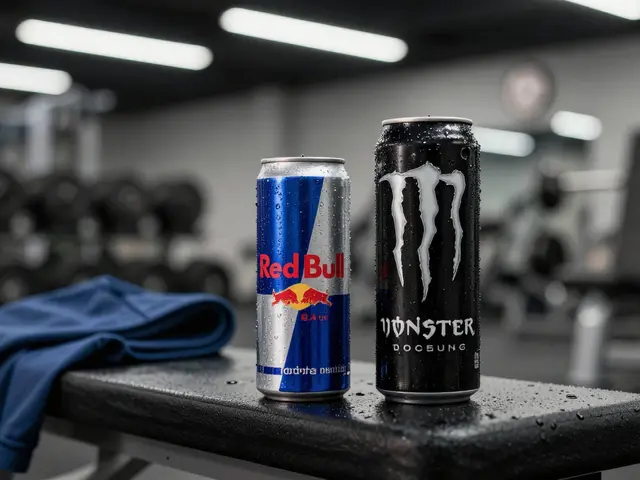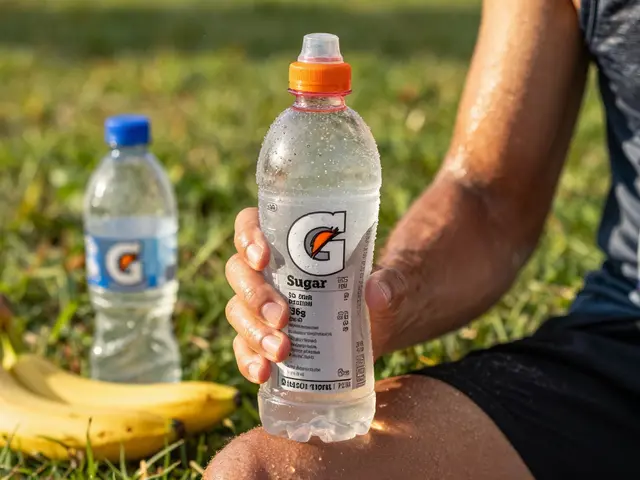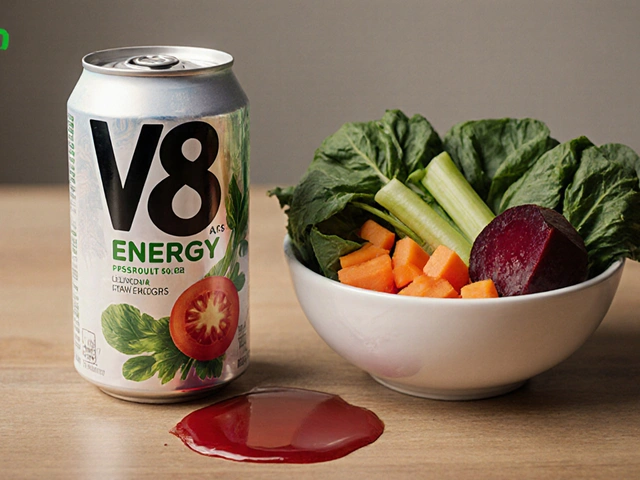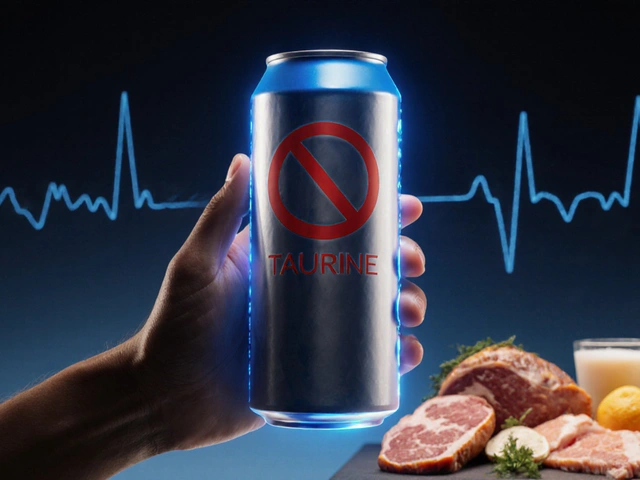What to Take for Stress: Evidence‑Based OTC Options in Australia (2025)

Most “calming” products promise the world. A handful actually help. If you’re stressed and want something you can buy today at an Australian pharmacy or supermarket, this guide shows what works, what’s safe, and how to match options to your symptoms (racing thoughts, tight chest, poor sleep). Expect realistic gains: you can nudge stress down and sleep better, but no pill fixes burnout or trauma. Still, smart over-the-counter choices can take the edge off while you sort the root causes.
TL;DR - The Short List, Doses, and What to Skip
Here’s the five-minute answer you probably came for. Save this, then read the details if you want the why.
- Quick calm without drowsiness: L-theanine 200 mg once or twice daily; helpful within 30-60 minutes. Best for mental tension and “wired but tired.”
- Daily buffer for tension: Magnesium (prefer glycinate) 200-300 mg elemental at night; give it 2-4 weeks. Good if you get muscle tightness and sleep issues.
- “All-day” stress reduction: Ashwagandha extract 240-600 mg/day for 4-8 weeks; modest benefit in trials, but watch for rare liver side effects. Avoid in pregnancy and with thyroid meds.
- Sleep-first approach: Melatonin MR 2 mg (pharmacist-only, S3) 1-2 hours before bed if your main problem is stress-related insomnia. Over 18s in Australia can access this after a pharmacist consult.
- Sleep, short-term only: Doxylamine 12.5-25 mg 30-60 min before bed (S2). Use sparingly; it’s sedating, can cause grogginess, and isn’t great for older adults.
Nice-to-have extras (optional):
- Standardised lavender oil capsules (e.g., 80 mg/day) for mild anxiety; takes 1-2 weeks.
- Chamomile extract for gentle calming (watch ragweed allergy and blood thinners).
- Rhodiola 200-400 mg in the morning for fatigue-plus-stress; can be slightly energising.
Skip or be cautious:
- GABA gummies/powders: poor absorption, weak evidence.
- Kava: can work but has liver risk; best under pharmacist/GP guidance if you choose it at all.
- St John’s wort: potent drug interactions (SSRIs, contraceptive pill, warfarin). Don’t self-start for “stress.”
- CBD: down-scheduled to pharmacist-only in theory, but as of 2025 there are no registered OTC CBD products on Australian shelves.
Ground rules:
- Trial one primary option at a time for 2-4 weeks; keep a simple stress or sleep diary.
- No mixing sedatives with alcohol, driving, or operating machinery.
- Red flags: panic attacks, suicidal thoughts, severe insomnia, chest pain, or symptoms lasting >4-6 weeks-book your GP.
Pick Your Path: A Simple Plan That Matches Your Symptoms
Stress doesn’t show up the same for everyone. Start with your top symptom and choose accordingly. You’ll get faster, cleaner results than stacking five supplements at once.
- Define your main problem
- Daytime anxiety (racing thoughts, tight chest, irritability)
- Sleep problems (can’t fall asleep, wake at 3 a.m.)
- Body tension and fatigue (wired/tired, clenched jaw, headaches)
- Choose one primary OTC option
- Daytime anxiety: L-theanine 200 mg once or twice daily. If you prefer herbal, consider lavender oil 80 mg/day or ashwagandha extract 240-600 mg/day.
- Sleep-focused: Melatonin MR 2 mg nightly (pharmacist-only, adults 18+). If unavailable or not suitable, short-term doxylamine 12.5-25 mg.
- Tension/fatigue: Magnesium glycinate providing 200-300 mg elemental at night; Rhodiola 200-400 mg in the morning if fatigue dominates.
- Add one supportive option if needed
- Pair magnesium with either L-theanine (daytime) or melatonin (night) if sleep and stress are tangled.
- Use chamomile tea/extract in the evening for a gentle nudge without heavy sedation.
- Run a 2-4 week trial
- Track: 0-10 stress rating, sleep onset time, night wake-ups, and side effects.
- Adjust timing before changing dose; many issues are timing-related (e.g., take rhodiola early, magnesium at night).
- Evaluate and iterate
- If you’re ≥30% better by week 3, keep going to week 8, then reassess.
- If no change by week 2 (and you’ve taken it correctly), switch options.
- If symptoms escalate or you rely on sedating antihistamines more than 2-3 nights a week, talk to your pharmacist or GP.
Quick starter stacks you can copy:
- Daytime calm + night sleep: L-theanine 200 mg at breakfast and lunch; magnesium glycinate 200-300 mg at night. If sleep still stuck, pharmacist-only melatonin 2 mg.
- Gentle herbal route: Lavender oil 80 mg with breakfast; chamomile extract in the evening; magnesium at night.
- Fatigue-dominant stress: Rhodiola 200 mg before 10 a.m.; magnesium at night. Skip rhodiola if you feel edgy.
What this plan won’t do: treat panic disorder, major depression, or trauma. If stress is wrecking your life, the fastest relief usually combines short-term clinical support (therapy, GP care) with basic habits (sleep, daylight, movement). The OTCs are there to round off the sharp edges.
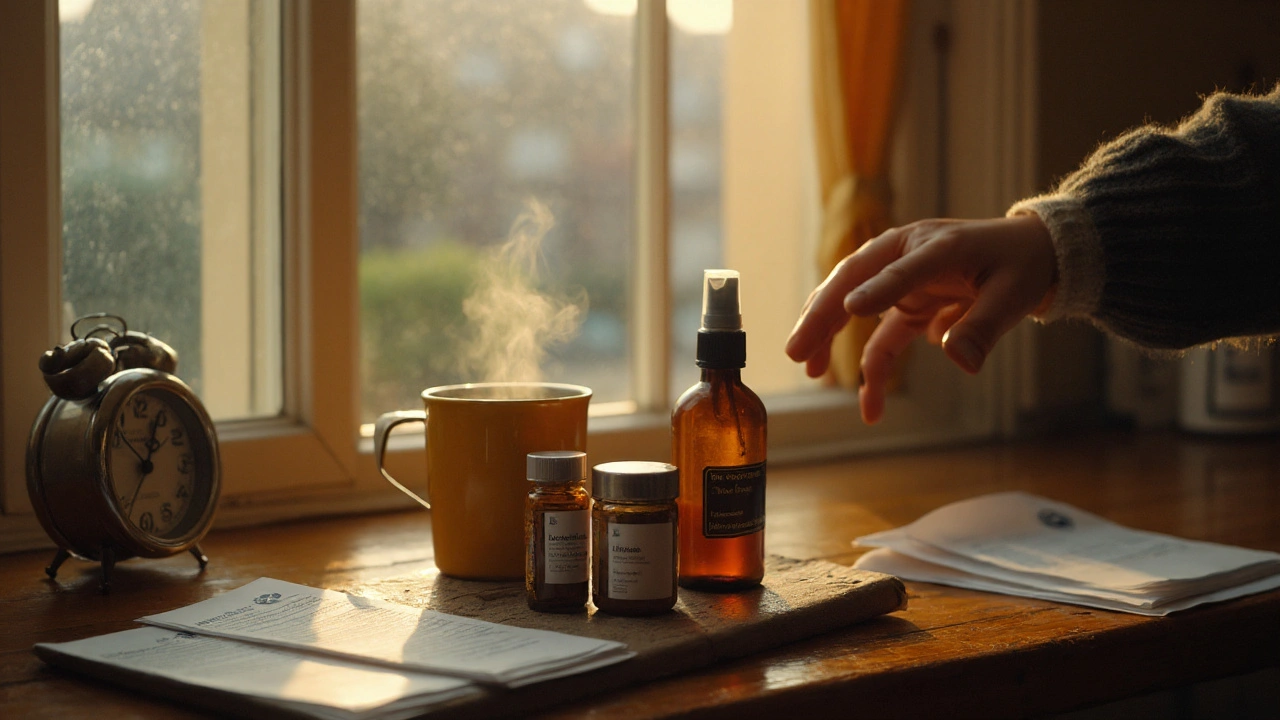
What Works (and How to Use It): Evidence, Doses, and Safety in Australia
I live in Brisbane and shop the same pharmacy aisles you do. Below is how I’d think through the shelf, backed by solid sources like the Therapeutic Goods Administration (TGA) and peer‑reviewed trials. Science evolves, but the basics haven’t changed dramatically in 2025.
Key:
- “Evidence” reflects human trials and systematic reviews for stress/anxiety or sleep.
- “Elemental magnesium” means the actual magnesium content (not the compound weight).
- “S2” = Pharmacy Medicine; “S3” = Pharmacist‑Only.
| Option | Evidence for stress/anxiety | Typical dose | Onset | Best for | Key cautions | AU status |
|---|---|---|---|---|---|---|
| L‑theanine | Moderate; RCTs show reduced stress response and improved calm | 200-400 mg/day split | 30-60 min | Racing thoughts; social stress | May lower BP slightly; rare headache | OTC supplement |
| Magnesium (glycinate preferred) | Mixed to modest; better if low intake | 200-300 mg elemental at night | 1-2 weeks | Tension, sleep quality | Loose stools (esp. citrate); kidney disease caution | OTC supplement |
| Ashwagandha (Withania somnifera) | Moderate; meta‑analyses show small-moderate stress reductions | 240-600 mg extract/day | 2-8 weeks | All‑day stress load | Rare liver injury; avoid in pregnancy, thyroid disease without advice | Listed medicine |
| Lavender oil capsules (standardised) | Moderate for mild anxiety | 80 mg/day | 1-2 weeks | Gentle daytime calm | GI upset; possible sedation | OTC supplement |
| Chamomile extract | Some support in mild anxiety and sleep | 220-500 mg 1-3×/day | 1-4 weeks | Evening wind‑down | Ragweed allergy; anticoagulants caution | OTC supplement |
| Melatonin MR 2 mg | Good for sleep onset/maintenance | 2 mg 1-2 h pre‑bed | Days | Stress‑related insomnia | Drowsiness; interact w/ sedatives | S3, pharmacist‑only |
| Doxylamine | Indirect (sleep aid) | 12.5-25 mg pre‑bed | 30-60 min | Short‑term sleep | Hangover; anticholinergic; avoid elderly | S2, pharmacy medicine |
| Rhodiola rosea | Some evidence for stress/fatigue | 200-400 mg morning | 1-2 weeks | Stress + low energy | Can feel stimulating; bipolar caution | OTC supplement |
| Omega‑3 (EPA/DHA) | Small benefit signal in anxiety | 1-2 g EPA+DHA/day | 4+ weeks | Inflammation, mood support | Bleeding risk at high dose | OTC supplement |
| B‑complex vitamins | Helps if deficient; not a calm pill | As per label with food | Weeks | Diet gaps, fatigue | Bright urine harmless | OTC supplement |
Notes and nuances you won’t see on a bottle:
- L‑theanine is a nice first try if you want calm, not sedation. RCTs show lower perceived stress and reduced physiological stress markers. It pairs well with daytime work-no fog.
- Magnesium glycinate is gentler on the gut than citrate. If you get loose stools, lower the dose or switch form.
- Ashwagandha works for some people but isn’t for everyone. Australia’s TGA issued safety communications about rare cases of liver injury; labels now carry warnings. If you notice dark urine, jaundice, or unusual fatigue, stop and see a doctor.
- Lavender oil capsules (standardised) have decent evidence for mild anxiety. If you hate sedation, start in the evening first to test how you feel.
- Melatonin MR 2 mg is pharmacist‑only now for adults 18+ in Australia. It’s for short‑term insomnia; if you need it most nights for months, see your GP.
- Doxylamine is an antihistamine. It can help you sleep when your mind won’t switch off, but it’s not a long‑term solution and isn’t ideal in older adults, glaucoma, or prostate issues.
- Rhodiola can be a great pick if you’re dragging through the day. If it makes you jittery, it’s the wrong fit-stop or reduce.
What about the usual suspects?
- St John’s wort: this is for depression, not generic stress, and it interacts with loads of medicines (SSRIs like sertraline, oral contraceptives, warfarin). Self‑prescribing is risky-skip unless your GP is managing it.
- Kava: meta‑analyses suggest it can reduce anxiety, but liver toxicity concerns remain. In Australia, some listed medicines include kava, but I’d only consider it under pharmacist/GP advice, avoid alcohol, and keep it short‑term.
- GABA supplements: little crosses the blood-brain barrier. If you feel calmer, great-but most of the time it’s not doing much beyond placebo.
- CBD: Australia down‑scheduled low‑dose CBD to pharmacist‑only years ago, but as of 2025 there are still no registered OTC CBD products available in pharmacies. Access is mainly prescription pathways.
Evidence check (why you can trust the shortlist):
- L‑theanine: multiple randomised trials show reduced perceived stress and improved attention under stress.
- Ashwagandha: pooled data from RCTs show small to moderate improvements in Perceived Stress Scale scores within 4-8 weeks; TGA safety warning about rare hepatotoxicity was issued in 2024.
- Lavender oil capsules: randomised studies in mild anxiety show better outcomes than placebo by 2 weeks.
- Chamomile: controlled studies in generalised anxiety suggest symptom reductions vs placebo; also supports sleep.
- Magnesium: benefits are most reliable if your diet is low in magnesium (common with high processed food intake); evidence is mixed but positive in that subgroup.
- Melatonin: strong sleep evidence; in Australia the TGA expanded pharmacist‑only access to adults, reflecting safety in short‑term use when properly counselled.
One more thing: timing matters. L‑theanine works fast; rhodiola is morning‑only; magnesium at night can help sleep. If a product “doesn’t work,” check your timing before you bin it.
Safety First: Interactions, Red Flags, and Smart Use
Stress can make you grab whatever promises relief. Slow down for one minute-this is the stuff that keeps you out of trouble.
Who should talk to a pharmacist or GP before taking anything:
- You take prescription medicines (especially SSRIs/SNRIs, benzodiazepines, antipsychotics, thyroid meds, anticoagulants, anticonvulsants).
- You’re pregnant, breastfeeding, or trying to conceive.
- You have liver, kidney, heart, or serious mental health conditions.
- You’re over 65 (sedatives and anticholinergics hit harder).
High‑risk interactions and cautions to know:
- SSRIs/SNRIs + 5‑HTP or St John’s wort: risk of serotonin syndrome-don’t combine without medical supervision.
- Anticoagulants/antiplatelets (e.g., warfarin, aspirin) with chamomile (theoretical risk), omega‑3 (high dose), or ginkgo (if in combo products)-ask first.
- Thyroid medication with ashwagandha: can affect thyroid hormones-monitor or avoid.
- Antihistamines (doxylamine) add sedation to alcohol, benzos, opioids-don’t mix.
- Liver concerns: ashwagandha and kava have rare but real liver risks. Stop immediately if you notice jaundice, dark urine, severe fatigue, or right‑upper‑abdominal pain.
Practical rules that work in real life:
- Pick one primary product. If it helps, keep it. If not, switch lanes (e.g., from theanine to lavender) rather than piling on.
- Aim for the lowest effective dose. More is not better-side effects creep up fast, especially with sedatives.
- Don’t use sedating antihistamines more than 2-3 nights a week. If you need them often, fix the root cause (sleep hygiene, melatonin timing, therapy, or a GP plan).
- Pair pills with behaviour. Ten minutes of daylight in the morning + a 10‑minute walk after work move the needle as much as half the supplement aisle.
Fast self‑checklist before you buy:
- What’s my main symptom? (Anxiety vs sleep vs tension)
- What’s my goal for the next 2 weeks? (Fall asleep 20 minutes faster? Fewer mid‑night wakeups?)
- Is this safe with my meds/conditions? (Ask the pharmacist. Australian pharmacists are brilliant at this.)
- What’s my stop rule? (If no benefit by week 2 at the right dose/time, I switch.)
Cost sanity check (Australia, 2025): expect roughly $15-$40 for a month of most supplements; melatonin MR 2 mg is often around the $20-$30 mark from pharmacies, depending on brand and pack size.
Evidence sources I rate: TGA scheduling decisions and safety alerts (Australia), randomised controlled trials and systematic reviews for the specific ingredient, and reputable monographs. If a product’s claim sounds like magic, it usually is.

FAQ, Quick Fixes, and Next Steps
Let’s wrap with the questions people ask me most and some ready‑to‑use paths depending on your situation.
What’s the fastest thing I can take before a stressful event?
L‑theanine 200 mg about 45 minutes before, or a single serving of standardised lavender oil if you tolerate it well. Both are non‑sedating for most people. For presentations or exams, avoid anything sedating.
What do I take if stress is wrecking my sleep?
Start with melatonin MR 2 mg 1-2 hours before bed (pharmacist‑only; adults 18+). If you need a night or two of stronger sedation, doxylamine 12.5-25 mg can help-but keep it short. Add magnesium at night to support sleep quality.
Can I combine magnesium and L‑theanine?
Yes. Good combo: magnesium at night, theanine in the day. If you add a third, choose carefully (e.g., lavender oil) and reassess every two weeks.
Is ashwagandha safe?
Many people tolerate it, but Australia’s TGA has warned about rare liver injury. If you choose it, use a standardised extract, avoid alcohol binges, and stop if you notice liver‑related symptoms. Not for pregnancy or thyroid issues without medical advice.
Is CBD available OTC in Australia yet?
No. It was down‑scheduled to pharmacist‑only in theory, but as of 2025 there are no registered OTC CBD products on pharmacy shelves.
What if my “stress” feels more like depression?
Don’t self‑treat with St John’s wort-interactions are messy. Book your GP. If you need something now, gentle options like magnesium or theanine are low‑risk while you wait for an appointment, but they’re not a treatment for depression.
Any tea that actually helps?
Chamomile (standardised extract works better than tea, but tea is a simple start), lemon balm, and passionflower blends can help with evening wind‑down. Keep it caffeine‑free after lunch.
How long should I try something before I decide?
Fast‑acting: L‑theanine (hours). Sleep: melatonin (days). Herbs like ashwagandha, lavender, chamomile (2-4 weeks). If there’s zero change by those timeframes and you’re taking the right dose at the right time, switch.
Ready‑to‑use “recipes” (safe for most adults):
- Wired brain, calm body: L‑theanine 200 mg at 8 a.m. and 1 p.m.; afternoon daylight break; magnesium 200 mg elemental at 8 p.m.
- Night owl drift: Melatonin MR 2 mg at 8:30 p.m.; lights dim by 9 p.m.; bed by 10 p.m.; magnesium 200-300 mg elemental after dinner.
- Stress + low energy: Rhodiola 200 mg at 8 a.m.; protein breakfast; 10‑minute walk after lunch; magnesium at night.
Pitfalls to avoid:
- Doubling doses after day one. Give your pick time to work.
- Taking energising herbs late (rhodiola after lunch = staring at the ceiling at midnight).
- Using alcohol as a “relaxant” with sedatives. That combo is where most scary stories start.
When to escalate to professional help (don’t wait this out):
- Severe anxiety or panic attacks
- Suicidal thoughts
- Insomnia lasting more than 3-4 weeks despite trying basics
- Unintentional weight loss, persistent chest pain, shortness of breath, or new neurological symptoms
How to talk to your pharmacist (and get better answers):
- “My main symptom is X. I’m thinking of [L‑theanine/magnesium/melatonin]. Is it safe with [your meds]?”
- “What dose and timing would you start at?”
- “If it doesn’t work, what’s the next best option for my symptom?”
And because you found this looking for fast wins: here’s a one‑liner to anchor your plan-“Pick one thing, time it right, review in two weeks.” That’s the core of good OTC stress relief.
Why I trust these picks: I lean on TGA decisions for what’s actually accessible here in Australia, plus real human trials. For example, melatonin going pharmacist‑only for adults 18+ reflects both safety and effectiveness when used properly. Meta‑analyses on ashwagandha and lavender show modest but real benefits. Magnesium’s effects show up most in people with low intake (very common). L‑theanine works quickly for many without sedation, which is rare in this space.
Your next step: decide your main symptom, choose one option, and set a two‑week check‑in. If you’re uncertain, pop into your local pharmacy-they’ll sanity‑check doses and interactions in under five minutes.

